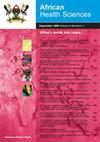Factors influencing public and private healthcare utilisation in Uganda
IF 0.9
4区 医学
Q3 MEDICINE, GENERAL & INTERNAL
引用次数: 0
Abstract
Background: In Uganda, health care utilisation remains very low despite a number of government reforms that have beenimplemented in the health sector since the 1990’s such as decentralization and removal of user fees in public health facilitiesamong others. Objective: To examine the factors influencing public and private health care utilisation in Uganda. Methods: The study used cross sectional data from the Uganda National Household Survey collected between July 2016 andJune 2017. Anderson’s conceptual framework was used to identify explanatory variables associated with choice of health careproviders and a multinomial logistic regression model was estimated. Results: Out of the 17,912 individuals who sought care, 36% used a government facility, 60% used private facility while 4% hadself- care/treatment. The results show that out of pocket health expenditure, age, level of education, marital status, residence,and type of illness significantly influenced choice of public healthcare providers. Similarly, utilisation of private healthcare providerswas associated with household welfare, level of education, residence, marital status, illness days, and type of illness. Conclusion: The findings highlight the need for a national health insurance scheme to reduce out of pocket payments for healthcare and enable the poor and vulnerable patients visit the modern health facilities. Keywords: Utilisation; multinomial logit; health care provider, policy; Uganda.影响乌干达公共和私人医疗保健利用的因素
背景:在乌干达,尽管自20世纪90年代以来政府在卫生部门实施了一些改革,如权力下放和取消公共卫生设施的用户费用等,但卫生保健的利用率仍然很低。目的:探讨影响乌干达公共和私人医疗保健利用的因素。
方法:该研究使用了2016年7月至2017年6月收集的乌干达全国家庭调查的横断面数据。使用Anderson的概念框架来识别与医疗服务提供者选择相关的解释变量,并估计多项逻辑回归模型。
结果:在17,912名寻求护理的个人中,36%使用政府机构,60%使用私人机构,4%使用自我护理/治疗。结果显示,自费医疗支出、年龄、受教育程度、婚姻状况、居住地和疾病类型对公共医疗服务提供者的选择有显著影响。同样,利用私人医疗保健提供者与家庭福利、教育水平、住所、婚姻状况、患病天数和疾病类型有关。
结论:研究结果突出了国家医疗保险计划的必要性,以减少医疗费用的自付,并使贫困和弱势患者能够访问现代医疗机构。
关键词:利用率;多项罗吉特机率;卫生保健提供者,政策;乌干达。
本文章由计算机程序翻译,如有差异,请以英文原文为准。
求助全文
约1分钟内获得全文
求助全文
来源期刊

African Health Sciences
MEDICINE, GENERAL & INTERNAL-
CiteScore
2.30
自引率
0.00%
发文量
179
审稿时长
>12 weeks
期刊介绍:
The African Health Sciences is an internationally refereed journal publishing original articles on research, clinical practice, public health, policy, planning, implementation and evaluation, in the health and related sciences relevant to Africa and the tropics. Its objectives are to: Advocate for and promote the growth of reading culture in sub Saharan Africa; Provide a high quality journal in which health and policy and other researchers and practitioners in the region can and world wide, can publish their work; Promote relevant health system research and publication in the region including alternative means of health care financing, the burden of and solution of health problems in marginalized urban and rural communities amongst the displaced and others affected by conflict; Promote research and the systematic collection and collation and publication of data on diseases and conditions of equity and influence; Promote development of evidence-based policies and guidelines for clinical, public health and other practitioners. African Health Sciences acknowledges support provided by the African Health Journals Partnership Project that is funded by the US National Institutes of Health (through the National Library of Medicine and the Fogarty International Center) and facilitated by the Council of Science Editors.
 求助内容:
求助内容: 应助结果提醒方式:
应助结果提醒方式:


